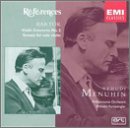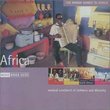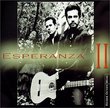| All Artists: Bartok, Menuhin, Furtwangler, Philharmonia Orch Title: Violin Concerto 2 / Solo Violin Sonata Members Wishing: 0 Total Copies: 0 Label: EMI Classics Release Date: 3/12/2002 Album Type: Original recording remastered Genre: Classical Styles: Chamber Music, Forms & Genres, Concertos, Historical Periods, Classical (c.1770-1830), Modern, 20th, & 21st Century, Instruments, Strings Number of Discs: 2 SwapaCD Credits: 2 UPCs: 724357479929, 724357479950 |
Search - Bartok, Menuhin, Furtwangler :: Violin Concerto 2 / Solo Violin Sonata
 | Bartok, Menuhin, Furtwangler Violin Concerto 2 / Solo Violin Sonata Genre: Classical
|
Larger Image |
CD DetailsSimilar CDs
|
CD ReviewsBrilliant Concerto, Supreme Performance Yogesh Kumar | Bangalore, India | 01/28/2004 (5 out of 5 stars) "Bela Bartok was one of the most original composers of the 20th century. His music is tonal unlike that of Arnold Schoenberg and his pupils, although his sound is modern, dissonant and often barbaric. All this from a man who was actually an anchorite, a keen Nature lover, and adored children and animals. He didn't intend to write a second violin concerto. Rather he was wanting a set of variations for the violin. But the dedicatee of the concerto, Zoltan Szekely, would have nothing but a full sized concerto. Well, Bartok could make both the parties happy - he wrote a concerto which begins with a twelve-tone melody and then throughout the concerto he goes of creating fantastic variations of it. Yehudi Menuhin mentions that the same set of notes appear some 33 times in the entire concerto, and each time with a new varaition. Sometimes the variations are drawn in such a way that unless one listens to keenly, one cannot figure that the variation actually stems from the original melody. The concerto is full of ideas and even after 100th listening, once can find surprises. Yehudi loved this concerto and recorded it four times. Another significant aspect of the concerto is that the composer himself had confided to Yehudi that in writing the concerto he wanted to prove to Schoenberg that one can write a twelve-tone melody and still remain tonal (Schoenberg created the twelve-tone scale and claimed that twelve-tone meldodies are atonal). Menuhin's collaboration with Furtwangler created many masterpieces and this ofcourse one that will be deemed supreme. The twelve-tone melody and its variations, everytime they emerge from Menuhin's bow, evoke a feeling of freshness. The second movement is one of the most noble, introverted and reflective movements ever written and Yehudi's playing imparts these traits to the movement. The solo sonata is an excellent and challenging piece for the violin of which Yehudi was the dedicatee. The reflective Tempi Di Ciaconna, the barbaric Fuga, the sweet Melodia, and the pinnacle of creation, Presto, all come out true to their spirits in Yehudi's hands. This CD is a treasure to cherish for all reasons - Bartok, Yehudi and Furtwangler. Last but not the least, Yehudi's interpretation and performance of the concerto was known to Bartok and had the composer's approval as brilliant." Furtwangler is unlikely in Bartok, but he and Menuhin find a Santa Fe Listener | Santa Fe, NM USA | 01/17/2006 (5 out of 5 stars) "Yehudi Menuhin was the leading proponent of Bartok's great Second Violin Concerto in its early years. The other reviewers here have detailed his allegiance to the piece and his four recoridngs of it. The least idiomatic is this one from 1953 with Furtwangler and the Philharmonia. Despite Furtwangler's tendency to soften and romanticize Bartok's angular orchestral part (many listeners may even preffer Furtwangler's way) the two find a convincing style together. The orchestra is recorded clearly but far away, so we don't really hear the marvelous colors in Bartok's writing. Menuhin is up close and plays superbly, with secure technique compared to other recordings from this era. Five stars for two great musicians in total sympathy.
Menuhin commissioned and premiered the Solo Violin Sonata, which in other hands is often too grating to enjoy form beginning to end--Bartok's view of the violin included more slashes than melodies. But Menuhin is in full possession here and makes even the most savage passages and abrasively dissonant double stops coherent; his Presto at the end is an incredible display of how a violin can be made to have many voices while playing at top speed. I cannot say he made me love this thorny work, but he made me respect it musically." |

 Track Listings (7) - Disc #1
Track Listings (7) - Disc #1


